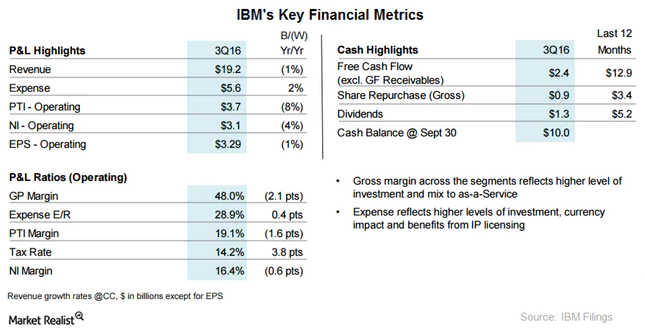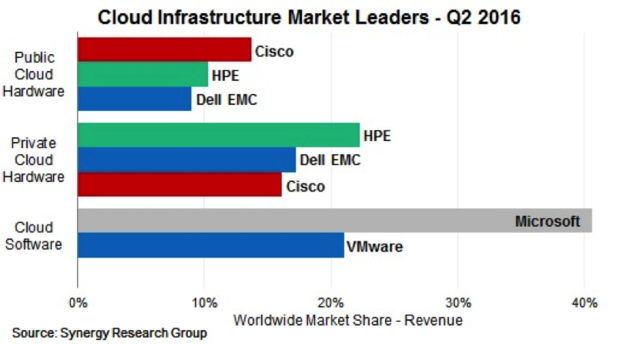
The keystone topics that drive this blog (AI and cloud) were quiet this week, while concepts like security and software claimed more space.
WannaCry was a dominant topic early in the week highlighting the need for IT security focus throughout the entire organization.
IBM has been making headlines not for cloud or AI, but for their remote work policies (again) and product line retirements.
AWS is getting good press for showing the value of experience in a culture that “doesn’t trust anyone over 30”.
Acquisitions
- Red Hat to acquire Codenvy as part of its growing container strategy
Codenvy is the company built on top of the open source project, Eclipse Che, which fits with Red Hat’s overall strategy to build commercial tools on top of open source projects. It offers a cloud-based integrated development environment (IDEs) for individual developers, teams or enterprises. IDEs are essentially workspaces for coding, building and testing apps.
The company did not reveal the purchase price.
- Microsoft to buy security firm Hexadite for $100M as Cloudyn still in progress
Hexadite has to date raised $10.5 million in funding, according to Crunchbase, with investors including HP Ventures, YL Ventures, TenEleven Ventures and Moshe Lichtman of Israel Venture Partners. Notably, Lichtman is a ten-year veteran of Microsoft, which could point to one connection between the startup and its alleged acquirer. Its last round, of $8 million, was raised last year.
If accurate, the Hexadite acquisition would be one of a series of security acquisitions that Microsoft has made in Israel. Past deals include Aorato, Adallom and Secure Islands.
https://techcrunch.com/2017/05/24/microsoft-hexadite-100m-cloudyn/?ncid=rss
- Softbank’s Nvidia stake is reportedly worth $4BN
When Softbank announced the first close of its Vision Fund this weekend — securing an initial commitment of $93 billion, from investors including Apple, Qualcomm and Foxconn — it also quietly disclosed it had taken a stake in Nvidia.
Bloomberg is today reporting the size of that stake is $4 billion, for 4.9 per cent of the company, which it says would make Softbank the fourth largest investor in the chipmaker.
https://techcrunch.com/2017/05/24/softbanks-nvidia-stake-is-reportedly-worth-4bn/?ncid=rss
Artificial Intelligence
- Lawmakers aim to ‘get smart’ about A.I. with help from giants like Amazon, Google, and IBM
On Wednesday, he announced the launch of the bipartisan Congressional Artificial Intelligence Caucus, which will look to inform lawmakers on the current state of AI and then push for policy that could boost economic activity around AI and help citizens whose jobs are being replaced by automation.
Regarding potential job loss:
Despite some fears about the effects of automation and AI on the workforce, Delaney is optimistic. “Data clearly demonstrates that innovation creates more jobs than it takes away,” Delaney told CNBC. The trouble is that people don’t understand the nature of the jobs that will be created, he said. The caucus will focus on these issues, as well as education, immigration reform and funding basic research.
Delaney is familiar with the idea of universal basic income, where the government would pay all citizens a basic stipend to let them buy necessities. Some Silicon Valley leaders have discussed this as a way to help workers whose jobs will increasingly be replaced by automation.
http://www.cnbc.com/2017/05/24/congressional-ai-caucus-working-with-amazon-google-ibm.html

Cloud
- Marc Benioff Touts Amazon as Salesforce’s New Best Friend
It is now clear that Salesforce sees AWS as a strategic ally as it battles all of those rivals. Salesforce had formerly been quite chummy with Microsoft, but that relationship soured fast when Microsoft outbid Salesforce in its $26.2 billion bid to buy LinkedIn. While Microsoft had always competed somewhat with Salesforce in sales software known as customer relationship management or CRM, the competition has heated up since that development. Speaking with Jim Cramer on CNBC Thursday, Benioff made sure to say that 21st Century Fox is moving 20,000 employees from Microsoft Office to Quip, business software that Salesforce acquired two years ago.
Security
- Almost all WannaCry victims were running Windows 7
According to data released today by Kaspersky Lab, roughly 98 percent of the computers affected by the ransomware were running some version of Windows 7, with less than one in a thousand running Windows XP. 2008 R2 Server clients were also hit hard, making up just over 1 percent of infections.
https://www.theverge.com/2017/5/19/15665488/wannacry-windows-7-version-xp-patched-victim-statistics
For WannaCry Victims, a Possible Way Out (not really)By Friday, a second French computer-security researcher, Benjamin Delpy, built a tool called Wannakiwi that does the heavy lifting of unscrambling the encrypted files. Europol, the European Union’s police agency, said Friday its cybercrime center had tested the tool and succeeded in recovering data in some circumstances.
Because the Wannakiwi tool works by grabbing data from the computer’s memory, it only will work for a small number of fortunate users.
https://www.wsj.com/articles/for-wannacry-victims-a-possible-way-out-1495226045
- All IT Jobs Are Cybersecurity Jobs Now
Despite all the money we’ve spent—Gartner estimates $81.6 billion on cybersecurity in 2016—things are, on the whole, getting worse, says Chris Bronk, associate director of the Center for Information Security Research and Education at the University of Houston. “Some individual companies are doing better,” adds Dr. Bronk. “But as an entire society, we’re not doing better yet.”
The article provides several suggestions on how to deal with security issues, especially for smaller companies:
Retrain IT staff on security—or replace them. In today’s world of ever-multiplying threats and dependence on connected assets, all IT staff must now be cybersecurity staff first. “The good news is that you don’t need that dedicated person to run your email server anymore—they can run security,” says Dr. Bronk.
https://www.wsj.com/articles/all-it-jobs-are-cybersecurity-jobs-now-1495364418

- Microsoft’s Old Software Is Dangerous. Is There a Duty to Fix It?
All of this raises the question of whether Microsoft, which declined to comment for this story, should have done more to fix the faulty software in the first place. The company’s after-the-fact approach to safety differs from other industries, such as car companies, where manufacturers have faced massive liability for failing to warn people about faulty ignition switches and other defective products.
There’s also the fact Windows is a closed software platform. This means any defects in its source code are hard to detect because the internal workings that make it run—the source code—are all but invisible to those outside the company. This is why some people like Eban Moglen, a noted computer law professor at Columbia University, considers platforms like Windows to be intrinsically dangerous.
Software/SaaS
- IBM’s ShinyHappy™ SAP Ariba deal papers over SaaS fail
IBM’s product is called “Emptoris”, from a company of the same name, and was reported to have come with a US$600m price tag when Big Blue acquired it in 2011. Big Blue bought Emptoris to advance the “Smarter Commerce” play it ran a few years ago, in pursuit of what it described as “a $20 billion market opportunity in software alone.”
https://www.theregister.co.uk/2017/05/23/ibm_discontinues_emptoris/
Never knew the investment IBM made on Emptoris… - Hadoop: It Offers Rich Technology With Slimmer-Than-Expected Margins
As technology, Hadoop is broadly used across the computing infrastructure of web service providers. Big Data is proliferating as well in commercial uses. As it is increasingly adopted in Enterprise computing, its attractiveness as a business will become increasingly clear. Hadoop is far less costly than present comparable Enterprise technologies such as Data Warehousing. Surely it offers strong growth. Yet for some specific reasons, Hadoop is relatively less profitable than other types of software, mainly because so much of the technology is Open Source and freely available. There is no fee in its licensing, as we noted above. No fee revenue, less profit
- Java creator James Gosling leaves Liquid Robotics (Boeing) to join AWS
James Gosling plans to join Amazon Web Services (AWS) as a “distinguished engineer,” according to a Facebook post penned by Gosling on Monday. Gosling did not say what he’ll do at AWS. But in addition to programming, Gosling is also familiar with the process of deploying IoT systems, according to Venture Beat.
Companies like AWS and Google are increasingly dependent on programmers to help them make technologies more useful to the general public by creating applications. Both companies have been known to give away cloud credits and other gifts to developers willing to help them. Bringing Gosling on board helps show programmers that AWS is programmer-friendly and could help the company attract more of them.
http://www.ciodive.com/news/java-creator-james-gosling-to-join-aws/443407/

Other
- China’s Lenovo to Reboot After Losing PC Crown to HP
For the first time in four years, Lenovo—a company that gained acclaim a decade ago for turning around storied U.S. personal-computer maker IBM — slipped from the top spot this year to No. 2 in the personal-computer market, behind rival Hewlett-Packard. Lenovo has also fallen to No. 8 in the number of smartphones shipped globally, from No. 3 when it acquired another U.S. brand, Motorola, in late 2014.
Lenovo’s Hong Kong-listed stock has fallen nearly 60% since the Motorola acquisition.
https://www.wsj.com/articles/chinas-lenovo-to-reboot-after-losing-pc-crown-to-hp-1495702920
- SAP has designs on new government business
“Imagine you’re a government employee and you take a trip. In the U.S., as soon as it’s approved and before you’ve even taken it, the government needs to set aside the money and record the liability for that approved spend, and then they need that approval to flow into all the impacted cost centers,” he said. “How you encumber, how you take that spend and how you put it as a liability, it starts to look like a core ERP use case.”
Koch sees a billion-dollar opportunity for SAP and its integration partners in the 90,000 U.S. government entities that are potential users of ByDesign.
- The FCC’s case against net neutrality rests on a deliberate misrepresentation of how the internet works
This analysis is like saying that because someone built a bridge, they also created the entire city on far side of it. It’s absurd, and in fact the argument was already tried and found wanting in a federal court just three weeks ago. Anyone with a modicum of technical knowledge will find this explanation of how the internet and web work truly wrongheaded and entirely incorrect. It’s hard to think of this as anything other than a willful misrepresentation of the facts.
- How SoftBank and Saudi Arabia Settled Their Differences to Birth the World’s Biggest Tech Fund
Although some level of wrangling is common in such deals, the back-and-forth from the Saudi negotiators, mostly PIF lawyers, made SoftBank executives begin to wonder if the Saudis were stalling. On at least one occasion, SoftBank executives sought assurance from PIF that the fund wouldn’t be scuttled. PIF negotiators assured their Japanese counterparts that MbS was 100% committed to its success.
SoftBank, which has 80 people in Silicon Valley and London looking for and processing deals, already has lined up a dozen deals of a billion dollars or more for the fund to invest in, with plans to work on “blockbuster” transactions of tens of billions of dollars in the future, said a person who helped set up the fund.
Photo: Flash Bros











